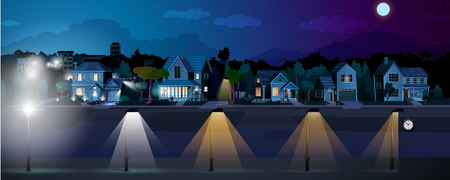
Let the Stars Shine: Embrace Dark Sky Week
International Dark Sky Week is April 2 from 8:00am until April 8th at 11:00pm. International Dark Sky Week is a worldwide event promoted by DarkSky International and has a local organization at DarkSky Chicago. DarkSky Chicago will be hosting a webinar through the DuPage County Board Environmental Committee called Starlight Sustainability: Illuminating Eco-Friendly Business Practices on April 3rd at 1pm.
Light pollution has altered wildlife behavior, human health and our ability to see our glistening stars and celestial bodies. Birds can easily become disoriented by artificial light and end up circling endlessly and depleting energy needed for migration. A 2019 study found that nearly one-billion birds are killed annually from colliding with buildings and Chicago, Houston and Dallas have the most fatalities. Many coastal cities have adopted lights out programs during sea turtle hatching. The little darlings are confused by the artificial light and head towards the city instead of the water falling prey to dehydration and predation and may never reach the ocean.
Human health can also be affected by disrupting our circadian rhythm and lowering our melatonin leaving us more fatigued and sleep-deprived. Studies have shown that the circadian cycle controls from ten to fifteen percent of our genes, so any type of disruption can cause many health problems such as depression, hypertension and heart disease. Several studies have shown that women exposed to more bright outdoor artificial lights have a higher risk a breast and colorectal cancer.
If you wish to keep your outside lights on at home, try a fully shielded lighting fixture to minimize your sky brightness. The National Park Service recommends an LED light with 2700 Kelvin. It is highly recommended to turn out the lights both residential and commercial establishments when their usage is unnecessary. Moreover, this practice yields many benefits as well. Firstly, it promotes energy conservation by reducing your carbon footprint and supports sustainability efforts. In addition, by turning out the lights you're helping to create a more favorable environment for wildlife and ecological balance. One of the best advantages to reducing light pollution is allowing for a clearer sky which enhances our ability to see more of our beautiful stars and celestial events. The Illinois Department of Natural Resources has provided best locations in IL to stargaze. There is also a local Fox Valley Astronomical Society that has monthly events for star gazing parties. While this may seem counterintuitive, several studies have found no clear evidence that increasing light reduces crime. Glare from lights make it hard to see others and having smart shielded lights that turn towards the ground are a better option.
Illinois is currently considering a Responsible Outdoor Lighting Control Act and we encourage you to talk to local elected officials about adopting Dark Sky requirements for new development. So, take this opportunity and practice responsible lighting. You can help set a positive example for others by inspiring them to consider their own lighting habits and their impact on the environment and community.

